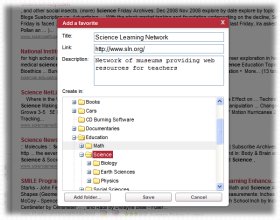|
Education
Web
Viewing 1-7 of 7 total results
development will include, but is not limited to, the interpretation and application of maps, graphs, charts, political cartoons, primary documents, and other social studies tools. The avenues for these concepts are developed through the social studies strands. The...
Explain the basic concepts of data and image processing. (DOK 1) • Types of data (e.g., raster, vector, and attribute) • Variety of sources for geological data and imaging g. Formulate a hypothesis of geological factors...
1
0
Explain the basic concepts of data and image processing. (DOK 1) • Types of data (e.g., raster, vector, and attribute) • Variety of sources for geological data and imaging g. Formulate a hypothesis of geological factors/problems and determine data sets pertinent to the hypothesis. (DOK 3) h. Explain how data sets are geo-referenced and geo-rectified. (DOK 1) i. Assess the quality and accuracy of GPS and/or remote sensing data. (DOK 2) j. Analyze and apply the basic concepts of
136
0
http://www.mde.k12.ms.us/acad/id/curriculum/Science/2010Framework/2010_MS_Science_Framework_July_25_2008.pdf#page=136
www.mde.k12.ms.us/acad/id/curriculum/Science/2010Framework/2010_MS_Scienc...
Explain the basic concepts <span class="highlight">of</span> data <span class="highlight">and</span> <span class="highlight">image</span> <span class="highlight">processing</span>. (DOK 1) • Types <span class="highlight">of</span> data (e.g., raster, vector, <span class="highlight">and</span> attribute) • Variety <span class="highlight">of</span> sources <span class="highlight">for</span> geological data <span class="highlight">and</span> imaging g. Formulate a hypothesis <span class="highlight">of</span> geological factors/problems <span class="highlight">and</span> determine data sets pertinent to the hypothesis. (DOK 3) h. Explain how data sets are geo-referenced <span class="highlight">and</span> geo-rectified. (DOK 1) i. Assess the quality <span class="highlight">and</span> accuracy <span class="highlight">of</span> GPS <span class="highlight">and</span>/or remote sensing data. (DOK 2) j. Analyze <span class="highlight">and</span> apply the basic concepts <span class="highlight">of</span>
evaluate, or exchange ideas effectively. a. The student will use and reflect on an appropriate composing process (e.g., planning, drafting, revising, editing, publishing) to express, communicate, evaluate, or exchange ideas with a focus on texts of increasing comp...
1
0
evaluate, or exchange ideas effectively. a. The student will use and reflect on an appropriate composing process (e.g., planning, drafting, revising, editing, publishing) to express, communicate, evaluate, or exchange ideas with a focus on texts of increasing complexity and length. [Note: Editing will be tested as a part of competency four.] (DOK 3) 1) Planning • Plan for composing using a variety of strategies (e.g., brainstorming, drawing, graphic organizers, peer discussion, reading, viewing
4
0
http://www.mde.k12.ms.us/ACAD/ID/Curriculum/LAER/LA_Framework_2006_Revised/LA_6th_grade_framework.pdf#page=4
www.mde.k12.ms.us/ACAD/ID/Curriculum/LAER/LA_Framework_2006_Revised/LA_6t...
evaluate, or exchange ideas effectively. a. The student will use <span class="highlight">and</span> reflect on <span class="highlight">an</span> appropriate composing process (e.g., <span class="highlight">planning</span>, drafting, revising, editing, publishing) to express, communicate, evaluate, or exchange ideas <span class="highlight">with</span> a focus on texts <span class="highlight">of</span> increasing complexity <span class="highlight">and</span> length. [Note: Editing will be tested as a part <span class="highlight">of</span> competency four.] (DOK 3) 1) <span class="highlight">Planning</span> • Plan <span class="highlight">for</span> composing using a variety <span class="highlight">of</span> strategies (e.g., brainstorming, drawing, graphic organizers, peer discussion, reading, viewing
stereotypes, bandwagon, plain folks, tabloid thinking, shock tactics and fear, intertextual references, card stacking, slanted words, glittering generalities, false syllogisms, etc). 3. The student will express, communicate, evaluate, or exchange ideas effectively. a. The student will use ...
1
0
stereotypes, bandwagon, plain folks, tabloid thinking, shock tactics and fear, intertextual references, card stacking, slanted words, glittering generalities, false syllogisms, etc). 3. The student will express, communicate, evaluate, or exchange ideas effectively. a. The student will use and reflect on an appropriate composing process (e.g., planning, drafting, revising, editing, publishing) to express, communicate, evaluate, or exchange ideas with a focus on texts of increasing complexity and length
4
0
http://www.mde.k12.ms.us/ACAD/ID/Curriculum/LAER/LA_Framework_2006_Revised/LA_8th_grade_framework.pdf#page=4
www.mde.k12.ms.us/ACAD/ID/Curriculum/LAER/LA_Framework_2006_Revised/LA_8t...
stereotypes, bandwagon, plain folks, tabloid thinking, shock tactics <span class="highlight">and</span> fear, intertextual references, card stacking, slanted words, glittering generalities, false syllogisms, etc). 3. The student will express, communicate, evaluate, or exchange ideas effectively. a. The student will use <span class="highlight">and</span> reflect on <span class="highlight">an</span> appropriate composing process (e.g., <span class="highlight">planning</span>, drafting, revising, editing, publishing) to express, communicate, evaluate, or exchange ideas <span class="highlight">with</span> a focus on texts <span class="highlight">of</span> increasing complexity <span class="highlight">and</span> length
stereotypes, bandwagon, plain folks, tabloid thinking, shock tactics and fear, intertextual references, card stacking, slanted words, etc). 3. The student will express, communicate, evaluate, or exchange ideas effectively. a. The student will use and reflect on an appropriate...
1
0
stereotypes, bandwagon, plain folks, tabloid thinking, shock tactics and fear, intertextual references, card stacking, slanted words, etc). 3. The student will express, communicate, evaluate, or exchange ideas effectively. a. The student will use and reflect on an appropriate composing process (e.g., planning, drafting, revising, editing, publishing) to express, communicate, evaluate, or exchange ideas with a focus on texts increasing complexity and length. [Note: Editing will be tested as a part of
4
0
http://www.mde.k12.ms.us/ACAD/ID/Curriculum/LAER/LA_Framework_2006_Revised/LA_7th_grade_framework.pdf#page=4
www.mde.k12.ms.us/ACAD/ID/Curriculum/LAER/LA_Framework_2006_Revised/LA_7t...
stereotypes, bandwagon, plain folks, tabloid thinking, shock tactics <span class="highlight">and</span> fear, intertextual references, card stacking, slanted words, etc). 3. The student will express, communicate, evaluate, or exchange ideas effectively. a. The student will use <span class="highlight">and</span> reflect on <span class="highlight">an</span> appropriate composing process (e.g., <span class="highlight">planning</span>, drafting, revising, editing, publishing) to express, communicate, evaluate, or exchange ideas <span class="highlight">with</span> a focus on texts increasing complexity <span class="highlight">and</span> length. [Note: Editing will be tested as a part <span class="highlight">of</span>
between points, historical or geographical points of interest, climate, etc. This may be done as a Power Point presentation. Students will develop a pictorial timeline of major technological developments and their effect on American life. Collect daily high temperature...
successful experiences. Additionally, the concepts of self-esteem and citizenship skills should go hand-in-hand. Kindergarten focuses on the child and the home. Starting with what children know, comparisons can be made to broaden their world. Skill development w...
|
